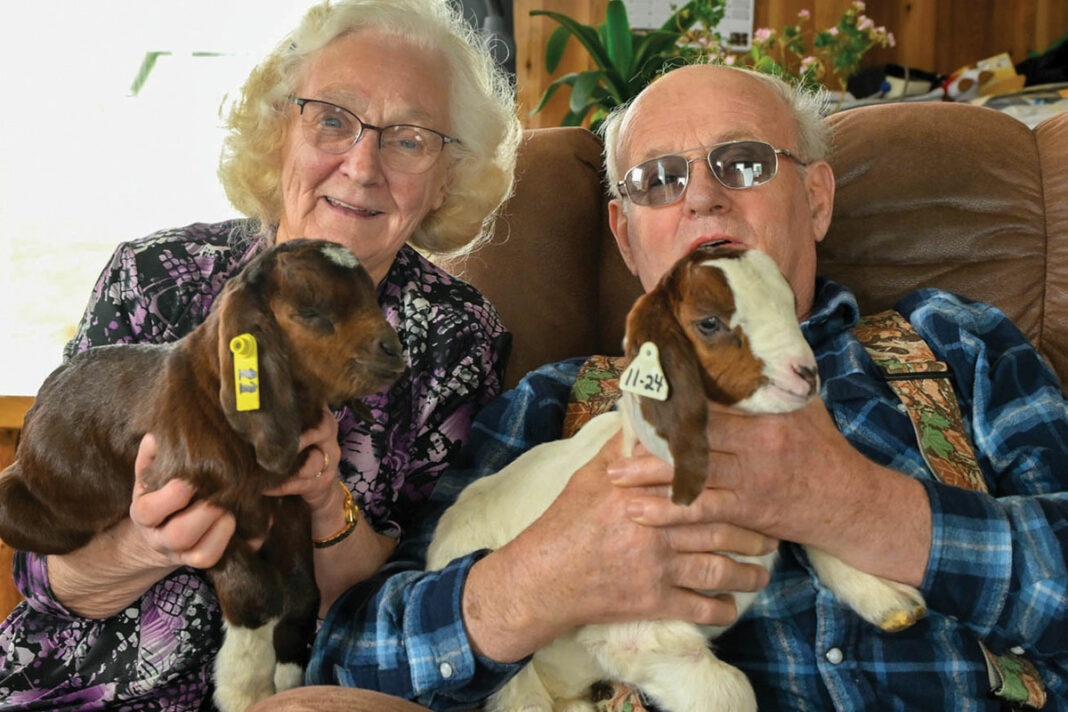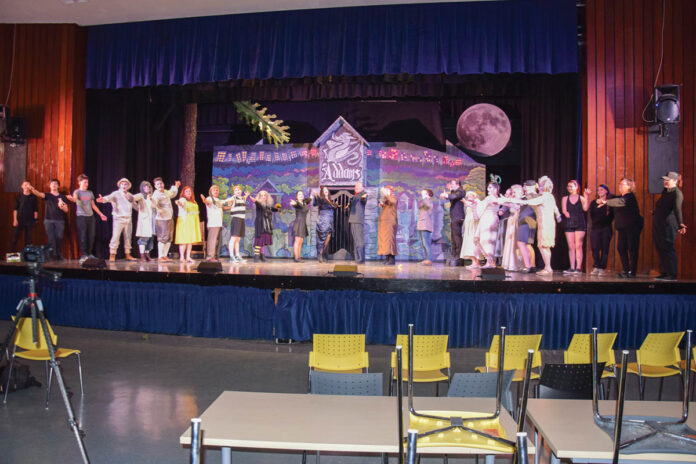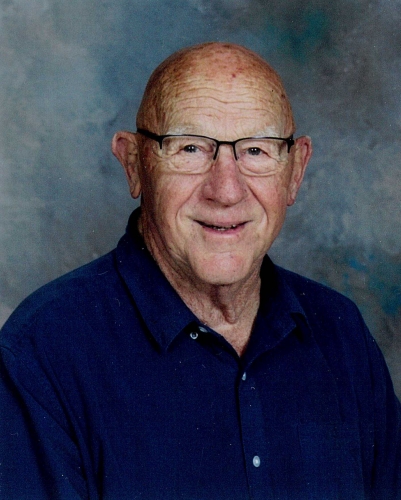Evert and Barbara Jansen
Barbara and Evert Jansen, both kind and very hospitable, have been casual acquaintances for several decades. Their cows have pastured on some of our land and daughter Kyla, who owns the Honora Bay Riding Stables, rides her horses there. Barbara is also a long-term Islander and many years of her long nursing career were spent on Manitoulin. Evert left post-war Holland with his family at age nine, settling in the Whitby-Ajax area, east of Toronto. He spent subsequent summers working with a Whitby dairy farmer, learning many tricks of the trade before acquiring his own dairy farm on Manitoulin.
Barbara shares her ancestry. “My maternal great grandfather was William Stirling, later ‘Sterling,’ born in Ireland of Scottish descent. He met and married Sarah Jane Wilson of Northern Ireland in New York City. They had three children, William, Mary and Wilson when they arrived at Manitoulin, about 1876. They settled across from what is now the new entrance of the Cup and Saucer. Sadly, William Senior died of pneumonia three years after coming to Canada, and also shortly before his last son, George, was born. The family stayed on their land, continued to farm, and remained active in the foundation of the Presbyterian Church.”
“Grandfather Wilson Thomas Sterling moved to the old Spring Bay area where his first wife died in childbirth. He subsequently married Emily Azetta Gilpin and farmed across from where Stanley Park would emerge later on Monument Road. Wilson and Emily had six children, Azetta Mae, the youngest, became my mother. Their farmhouse remains there today, having sheltered three generations of the Sterling family. Azetta Mae married Thomas Dougall Ellwood Stephens.
“My dad, Ellwood’s maternal great-grandparents, both of Scottish descent, were William and Elizabeth Kemp. In 1876, they arrived at Manitoulin from southern Ontario and settled in the Silver Water area. Their daughter Catherine, two, the youngest of eight children, became my grandmother. To the local Anishinabek population, her blond hair and blue eyes were most unusual.”
“Paternal great-grandparents, Richard and Mary Stephens, also settled in the Silver Water area in 1882. Their son Hugh died in his 40s when a dead branch fell from a tree he was cutting. My dad, Ellwood was three, when Hugh, his dad, was brought into the house on a stretcher. Sadly, his dad died a few hours later. Grandmother had to send some of the eight children to friends and relatives because she needed to work. She had lost the farm that was almost paid for because she could not make the final payments. She began to cook in a Sheshegwaning lumber camp, taking her youngest offspring with her. Grandmother lived with us until she died at 92. I was 19.”
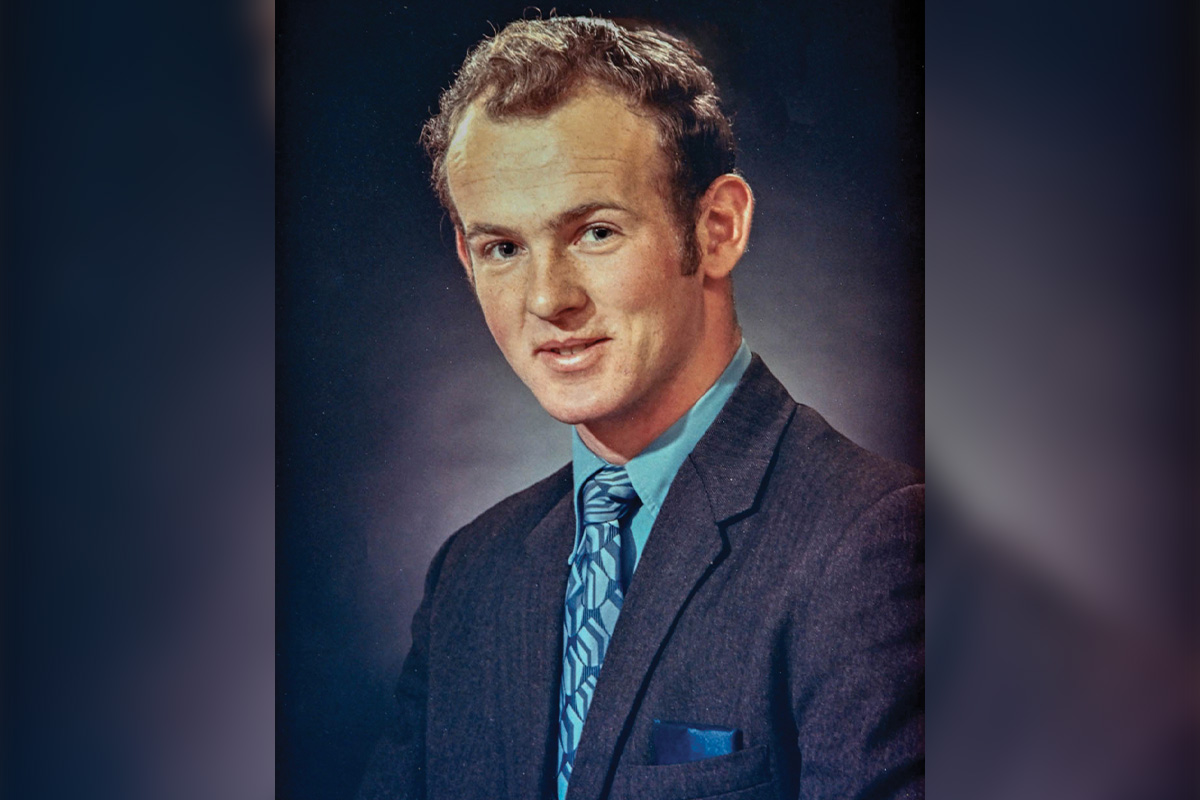
“My siblings are Hugh, Don, Richard, Ruth, Luann and Mark. I was born after Ruth on August 10, 1947 in the old Mindemoya Hospital. I lived in the Bock house for five years before moving to the farm where I grew up where brother Richard’s home is now on the Blue Road. An early memory is the move to the farm. I was sitting in the back of a car, pulling a wagon full of furniture. All the older siblings were happily sitting on top of the furniture, having fun. Luann and I were confined to the car for the two-mile trip.”
“School was SS# 2 Carnarvon. I liked school and our teacher, Mrs. Anglin. Christmas concerts were the highlights of our school life. I often sang a solo, a drill, and participated in the plays performing the singing portions in high school. We were all incredibly involved in school and home activities. We also cut Christmas trees and sold them so we would have money for presents. Our dad, Ellwood, unbeknownst to us, became the local community Santa for many years. He was built like Santa, and he fooled his own and other kids with his perfect rendition of Mr. Claus.”
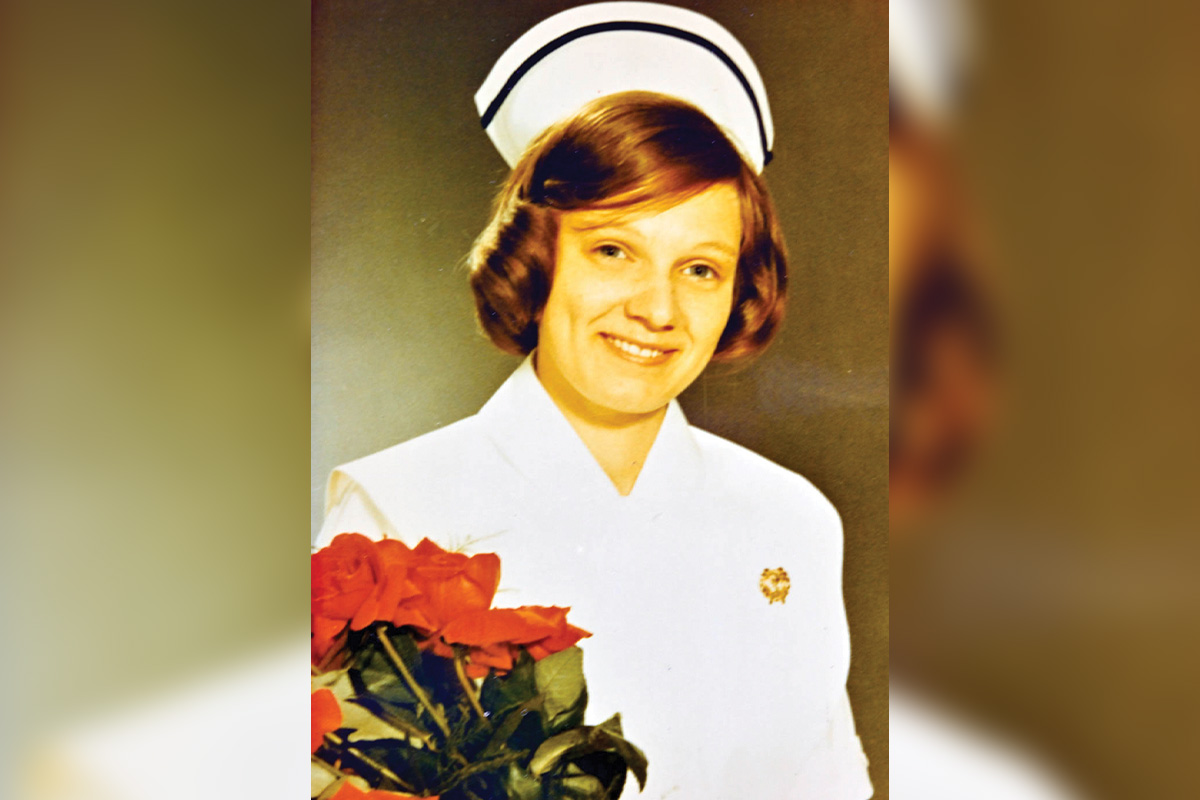
“My mother Azetta was a special person. She milked cows, baked wonderful fresh bread and cinnamon buns. She also sewed our clothes beautifully. We were always well-dressed. She read us stories at night and taught Sunday School, instilling a passion for Jesus in us. Her dad, Wilson, had been a lay preacher in the new settlements which were devoid of churches and officials at first. Mum also loved to sing, and we all sang.”
“In the Mindemoya High School, I liked English, French and Latin but I didn’t appreciate the value of geometry. Track and field and volleyball were fun. After graduating in 1966, I attended the St. Elizabeth School of Nursing in Sudbury, graduating in 1969. I returned to Manitoulin in September that year. This September, 2024, the school is hosting the 55th reunion at a resort in Collingwood.”
“I met Evert in October 1969 when I attended a Youth Conference in Windsor. Evert’s car had broken down and he had called Doris, a lady living in Toronto, one we both happened to know. Barbara and her friend Sharron were staying with Barbara’s sister Ruth in Toronto when both she and Evert called Doris for a ride. “Evert, his foster brother, Rangit, Sharron and I wound up in the same car. Yet another group was also picked up at the side of the road. There were eleven of us in one car, heading for Windsor. It was a bit snug, but we all had an exciting time.”
“The 500-person conference included groups from southern Ontario and the States,” Barbara continued. “I was not used to being with so many people. I met Evert again at a hayride in the evening. After the conference, we started writing letters to each other but we didn’t see one another until the following Easter. Meanwhile, I had spent a year nursing in Little Current before travelling to a Children’s Teaching Hospital in Winnipeg with my friend Sharron. We were stationed in the Intensive Care Unit and we learned a lot, both from experience and from taking or teaching classes.” Barbara returned home for visits and Evert came to Winnipeg a few times. They continued to write letters and called each other every week.
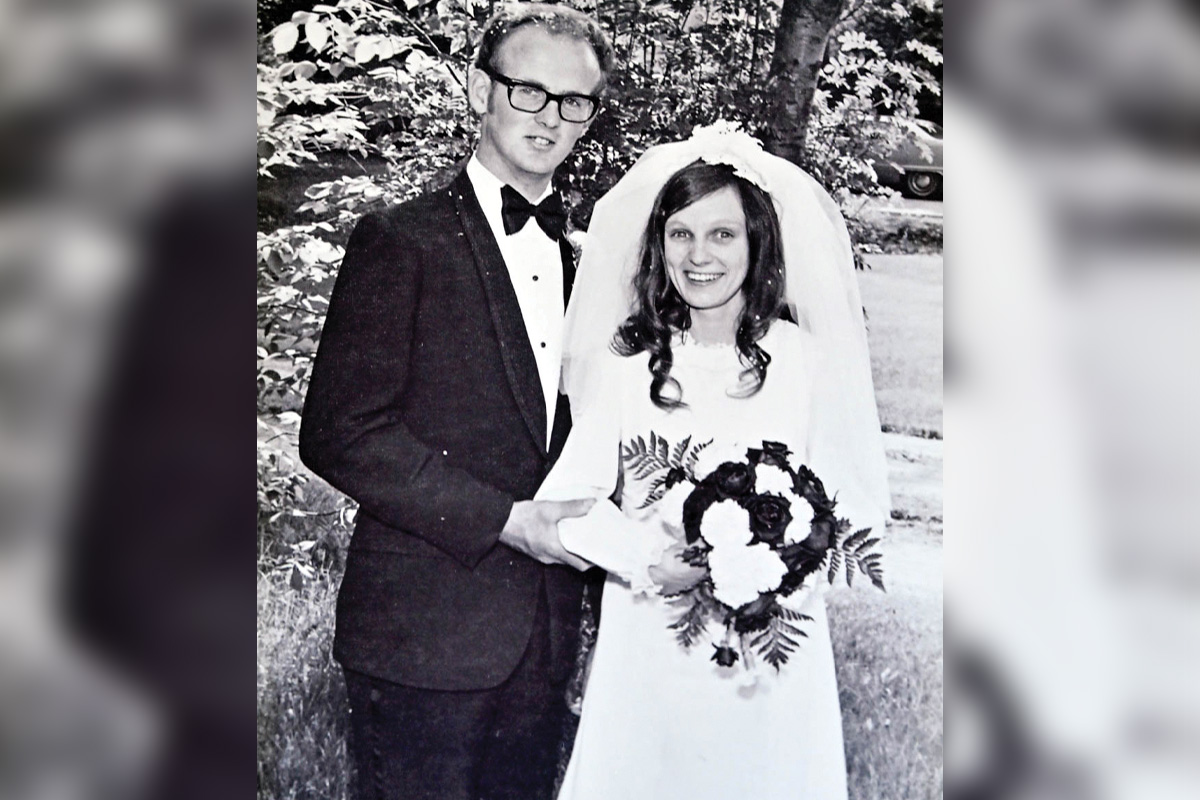
“Evert was a kind man, with nice eyes and he liked Manitoulin.” The long-distance romance moved to the next level when they were married on July 8, 1972, in the Spring Bay Baptist Church, in 90-degree weather. “That was the church I attended as a child, then called the ‘Grace and Truth Assembly.’ For the wedding, we had about 100 guests and the minister was Jake Reddekop. After the ceremony, everyone was surprised when he said, ‘Now, I would like to introduce Mr. and Mrs. Stephens.’ Evert took my hand and smiled as he whispered, ‘Let’s run.’ The wedding lunch was held at the Shaftsbury Hotel in Little Current. “It was very nice but there was no air conditioning. A garden reception was held at my parents’ home in Little Current. They had moved from the farm in 1968 to the house with the six-sided white tower on Blake Street.”
Evert shares his early years. “My maternal grandparents were Evert and Jacoba Korf. Evert was a fisherman and a vegetable farmer in the port city of Ijmuiden, Holland, a northern canal entrance to Amsterdam. They had six children and their fourth, Alie, became Evert’s mother. In her teens and early twenties, she worked as a cleaner on boats. She remembered being very hungry during the war years. Grandfather, part of the underground movement, bravely helped hide Jewish people in his basement during those years. He used his own ration cards to buy food for them. He often went without food and lost weight, but he survived the war.”
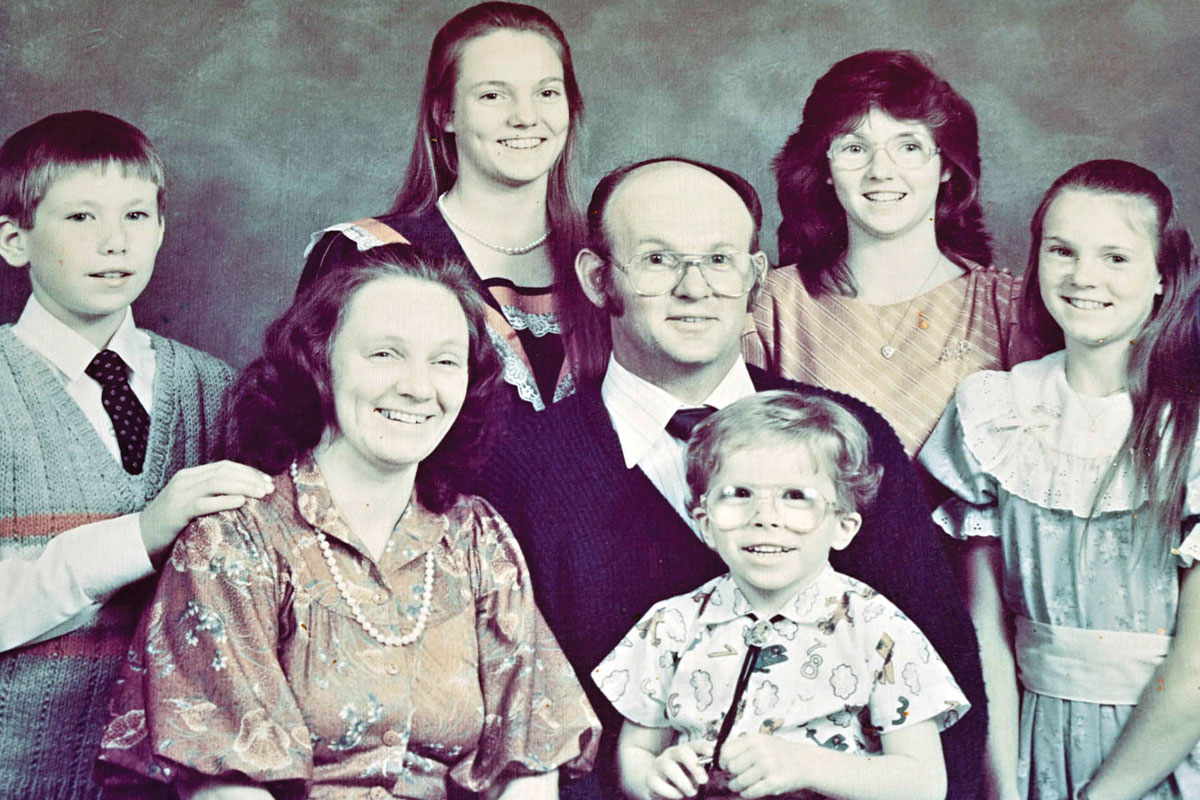
Paternal grandparents Henry and Jacoba Jansen lived in Haarlem, about 15 km away from Ijmuiden. They had 10 children, one of whom was my dad, Cornelis. During the war, the authorities conscripted him to help translate for persons being held in concentration camps. One day, near the end of the war, a big cannonball shot right through the concrete wall beneath his camp bed. He escaped through that hole and came home. After the war ended, he went to Agricultural School, but changed paths and became a cost-accountant for most of his life.”
“Cornelis met my mother, Alie Korf, at a church meeting. They were married in July of 1947 and had five children, Evert, Frank, Bill, Casey and Coby in Holland and two, John and Andrew both in Canada.” Evert, born in Holland on May 12, 1948, remembers playing in the abandoned German bunkers which weren’t safe. They held live ammunition, broken guns and swords. “I loved playing there and was never hurt. The bunkers were on the coastal sandy beaches and the wind was slowly burying them. Eventually, we couldn’t play in them mostly because the doors had been welded shut and the sand had also covered them. Only the chimneys stuck out of the sand.”
“By then, the government was giving people money for emigration. Holland had to be rebuilt and many people not involved with this critical task were jobless. Three uncles left for Australia, where dad wanted to join his brothers, but mother wanted to go to Canada. She felt Australia was too far away from the motherland. On April 12, 1957, with the required sponsorship of a church family in Canada, our family got on a four-propeller plane and headed for North America. Mother preferred that over two weeks of a nauseous boat journey. We had to stop for ten hours in Iceland because of stormy weather. We refueled and flew to Montreal where we enjoyed a full meal. It included a whole banana, not the quarter portion we had in Holland.”
“Three weeks later, our crated furniture arrived by boat to Port Hope. We got there by train. About three months later, we came to the Ajax area.” The five children were billeted out to church families for six months until their parents had found a house for them. “We spent two years in a house in Ajax and then moved to Whitby.”
“In an attempt to have the children be with their own cohort and learn English, the younger children were advanced every few months, starting in Kindergarten, until they reached their age group. I went right into Grade 5 with no English. That was hard, but I learned the language quite quickly. My teacher, Erma Wood, was a dairy farmer’s wife. I began to work for Erma and Don. My first job was raking hay with a horse. A new Case tractor for bailing and pulling loads was purchased and, years later, I inherited this tractor.”
“I worked at the Woods’ farm after school and in the summers and learned a lot about dairy farming. We still correspond with the Woods family today. Evert also helped at a sheep feed lot which sent 600 sheep to market each week. Don Woods got me my next job, at the O’Connors’ dairy farm in Whitby. Two of the four O’Connors were vets and two were dairy farmers. I stayed for seven and a half years. They started with 35 cows and eventually had 110 dairy cows. I was a herdsman for them when I met Barbara.”

“After Barbara and I married, and we had travelled to Prince Edward Island for our honeymoon, I found the south rather crowded and was happy to move North with her. I spent the first year making furniture with Barbara’s dad for ‘Rainbow Rustic Furniture’ in Little Current. Then I spent three years delivering milk for Farquhar’s, all around the Island, excluding Little Current.”
“I bought this 200-acre farm here in Honora and turned it into a dairy farm. I rented another 300 acres, for hay, grain and corn. We started with 45 milk cows, some young cattle and a small beef herd. We tried to optimize sales, depending on demand and market prices. We sold the dairy herd in 2006 but kept the beef herd. Now we have up to 100 meat goats here, keeping about 25 goats as breeding stock. They get shipped to the Toronto market.”
In spring 1977 the couple had taken Evert’s mother to Holland so Barbara could meet the family and his mother could visit her homeland. Barbara and Evert have five children, Serena Mae, Kyla Annette, Erica Ruth, Michael Benn and Peter William. Serena, a nurse, and her husband Marious Verboom have five children. The first, Marena, has a day care and her husband Darrion Robinson is a carpenter. Alaina, her second, works for a mining company in Verner, and her husband Nehemiah Krause is a farm trucker. The other three, Arian, Neils and Silva, live at home. Arian is fully involved with farm work. Neils does carpentry and small engine repair and Silva likes sports and piano.
Barbara and Evert’s second child Kyla only has four-legged children. She runs the horse ranch in Honora and delivers mail in the winter. The Jansen’s third child Erica is married to Thomas Connerty, an aircraft engineer. They have a homestead farm near Ottawa with goats, chickens and a big garden with bee hives. Erica makes soap out of goat’s milk. Thomas has retired from the military and works in Ottawa. They have two children: Keira, who plays violin and Arya on piano.
Fourth child Michael died at age 23. His two daughters are Alexandra and Brianna. Alexandra, a teacher, is married to Josh Turner, a physiotherapist. They have Barbara and Evert’s first great-grandchild, Haven. Brianna works for an electrical supplier and she is married to Josh Prinzen, a pig farmer. They live south of Hamilton. The Jansen’s last child, Peter, lives independently in Mindemoya, as part of the Community Living family. He is computer literate and a musician. He also does yard work in Mindemoya.
Four years after the dairy herd was sold in 2006, Evert began driving two days a week for the ‘Aging at Home Van’ for Noojmowin Teg in Aundeck Omni Kaning. He stopped when COVID hit, “I really liked that job.” He also continued his farming. In 2008, from their base in Holland, the couple saw Switzerland, Germany, Belgium, France and Luxemburg over six weeks. Later they saw both coasts of Canada and travelled to Prince Edward Island with a few grandchildren. “We rented a cottage there and returned through the northern United States.” Barbara retired from nursing on the Island in 2014.
Were either of you named after anyone? Evert: “My dad and my grandfather were Evert, and my dad was Cornelis, my middle name.” Barbara: “I was named after my mother’s aunt Barbara Gilpen.”
Fondest memory? “Meeting one another 55 years ago. We’ve had a great life.”
Favourite pets? “Scott, a smart poodle terrier, who always stayed with us.”
Favourite season? “Spring, a time for calving and gardening. I love the baby animals, including ducks and tiny chicks. Twenty Kindergarten kids used to come for tours in the spring to see the babies.”
Favourite movie or book? “The Janet Oake series which was made into the television series, ‘When Calls the Heart.’”
Favourite television show? “The news and Heavy-Duty Trucks on the 401.”
Strengths? Barbara: “I like people and children around me and all aspects of nursing. Presently I work with small groups of ladies at the Grace Bible Church.” For Evert: “I like working with farming machinery and sharing information about farming. I also like people.” Awards? “In 4-H leadership awards for 25 years of volunteering, best calving interval and the amount of butterfat in milk.”
Associations? “The Milk Board and the Federation of Agriculture at various times.” For Barbara it’s 20 years of teaching in Sunday School and the Bible Club every Thursday which included crafts, singing and farm activities. “Many kids would get off the bus here, and later, Evert would take them home. Fairs and ‘Horse Club’ were popular, too. We always had an open door for all.”
Something you still want to do? “Take the RV and go to Alaska, the west coast and other places.”
What did you enjoy most as a parent? “Watching the kids grow physically, spiritually and mentally. Each has chosen their own path.”
If you could go back in time, would you change anything? “No, we need to accept life and be happy with what we have.”
Was there something you wanted to be as an adult? “I wanted to be a teacher and I have taught in my nursing profession and with kids’ groups.”
People who inspired you? Barbara: “My mother was a strong, compassionate lady who always welcomed people to her home, making cookies and tea into her nineties.” Evert: “I met Hans Dendekker, a talented dairy farmer from Listowel, 40 years ago when he saw our Dutch and Canadian flags and stopped here. We have been friends ever since.”
Recipe for happiness? “Spend time in prayer and leave it to God.”
Favourite verse? “Trust in the Lord with all your heart. Don’t just lean on your own understanding.”
“You can’t beat Manitoulin as a place to live. The views are unique and you are out of the city, in a place where you know many people. Help is there if you need it. Our neighbours, Lee and Marlene Spry from Rockville Farms, used to farm across the road. They introduced themselves at the onset. Lee helped me take the corn off and I helped him when he needed help. They became long-term friends until they passed last year. After son Michael died, we helped with Michael’s two girls. Barbara’s family has been here for many generations and are attached to the Island. Now part of our family loves it here, too. Barbara adds, “I was going to nurse elsewhere, but I am so glad I came back to God’s Country. We also have longevity in our genes. Evert’s mother died at 97 and my mother was 95 so we may be here enjoying the Island for a long time yet.”

